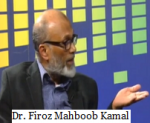By Mawlana Muhammad Saleem Dhorat
Once again, the best of all months, RamadhÄn, is upon the horizon. It is a month in which at least one du'Ä is accepted daily from every Muslim, one sunnah/nafl act is equivalent to the reward of one farḠact, and one fardh act is rewarded seventy times over. From morning to evening and evening to morning, each and every second, AllÄh ta'ÄlÄ showers His choicest blessings and barakah upon His servants.
It is the month in which lies a night (i.e. Laylatul Qadr) greater in virtue than a thousand months. It is the month in which the provision of the truthful bondsmen is augmented. It is the month in which the fish in the sea seek forgiveness for the fasting servant, and AllÄh ta'ÄlÄends mercy upon those who partake of suhÅ«r. During the first part of this month mercy is showered, forgiveness is granted in the second part, and the last part brings emancipation from Hellfire. As for the bondsmen who keep the fasts of this blessed month with Ä«mÄn and in search of AllÄh's recompense, all their previous sins are forgiven.
It is during this month that the ShayÄtin are shackled, all the gates of Hell are closed and all the gates of Heaven are flung open. AllÄh ta'ÄlÄ makes it easy for His servants to acquire Jannah, and makes it difficult for His servants to tread paths that lead to Jahannam.
During this auspicious month we are expected to fast and keep control of our base desires so that we may acquire taqwÄ: a blessing that leads to success in both worlds.
O you who believe, fasting has been prescribed for you as it was prescribed for those that came before you, so that you can become muttaqīn. (2:183)
Through mujÄhadah (striving), fasting, tarÄwÄ«h and devotion, we will develop the quality of taqwÄ and its nÅ«r will enlighten our hearts. This in turn will make our hearts such that not only will they begin to shun the filth of sin, they will also begin to despise it.
But why is it then, that having witnessed the passing of this blessed month often, our lives have not yet changed, and we continue to lead a life of sins. We need to strive to make this year's RamadhÄn a turning point in our lives, as there is no guarantee that we will live to see the next one. With this purpose in mind, let us ensure we follow these three points:
- Abstain from sin. We must resolve to spend the entire month of RamadhÄn without committing even a single sin, and resolve to continue the same after RamadhÄn.
- Do not waste a single second. We should make a timetable from now; set our times for our daily prescribed practices and slowly but surely increase them, e.g. our recitation of the Glorious Qur'Än, dhikr etc.
- Make a firm resolution to change your life this RamadhÄn. Daily, we should sit and contemplate our past, for at least fifteen minutes. In particular, we should think about what we were supposed to have done but failed to do, and how many opportunities were given to us by AllÄh ta'ÄlÄ yet were wasted. As a result we should make plans to improve our future lives.
In addition, RasÅ«lullÄh sallallÄhu 'alayhi wasallam mentioned four things we must do abundantly in the month of RamadhÄn, two for the Pleasure of AllÄh and two that we cannot do without.
- Recite in abundance the kalimah LÄ€ ILÄ€HA ILLALLÄ€H.
- Seek His forgiveness through istighfÄr.
- Ask for His Jannah.
- Ask His refuge from the Fire of Jahannam.
My late father, HÄfidh IbrÄhÄ«m Dhorat rahimahullÄh taught me a prayer during my childhood, which I assume he did keeping in mind the aforementioned hadÄ«th of RasÅ«lullÄh sallallÄhu 'alayhi wasallam. He taught me to recite abundantly during the month of RamadhÄn:
LĀ ILĀHA ILLA ALLĀH, ASTIGHFIRULLAH, AS'ALUKAL-JANNAH WA A'ŪDHUBIKA MINAN NĀR.
There is none worthy of worship besides AllÄh; I seek forgiveness from AllÄh; I beg from You [O AllÄh] Paradise, and I seek refuge in You [O AllÄh] from the Hellfire.
May AllÄh enable us all to truly value RamadhÄn this time round, making it the beginning of a new chapter in our lives in which we gain His pleasure and become as He wishes us to be. Ä€mÄ«n.
© RiyÄdul Jannah (Vol. 25 No. 2, Feb 2016)







